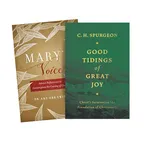I have a friend who once told me that, in the course of daily life, she frequently imagines what it would be like to be a medieval peasant. We all have our quirks, I guess.
Sometimes she makes the comparison in order to make her feel better about life now, as a kind of internal pep talk: ‘Think life is hard? Think how much harder it would be if you were a medieval peasant!’ Other times the comparison is more negative: ‘Life would be much simpler if I were a medieval peasant.’ Fewer decisions to make and a lot less to do, at least at this time of year: medieval winter is surely just a case of looking at an empty field and hoping your supply of turnips or whatever lasts you until Spring. No Sunday School nativity plays or ‘Oh help, it’s Christmas jumper day tomorrow’ moments.
That’s not to say that our medieval forebears didn’t know how to do Christmas. I’ve listened to precisely one episode of the BBC history podcast ‘You’re Dead to Me’ on the subject and now I’m practically an expert. Rather than have everything leading up to ‘the big day’ – which often, if we’re honest, falls short of expectations – they had a sombre Advent followed by a full 12 days of Christmas, plenty of mummers, Yule logs, and more spices than you can shake a stick at.






Fallen royals vs. the eternal reign of King Jesus
The removal of former Prince Andrew’s royal titles and privileges has been the story of the week, and I suspect …